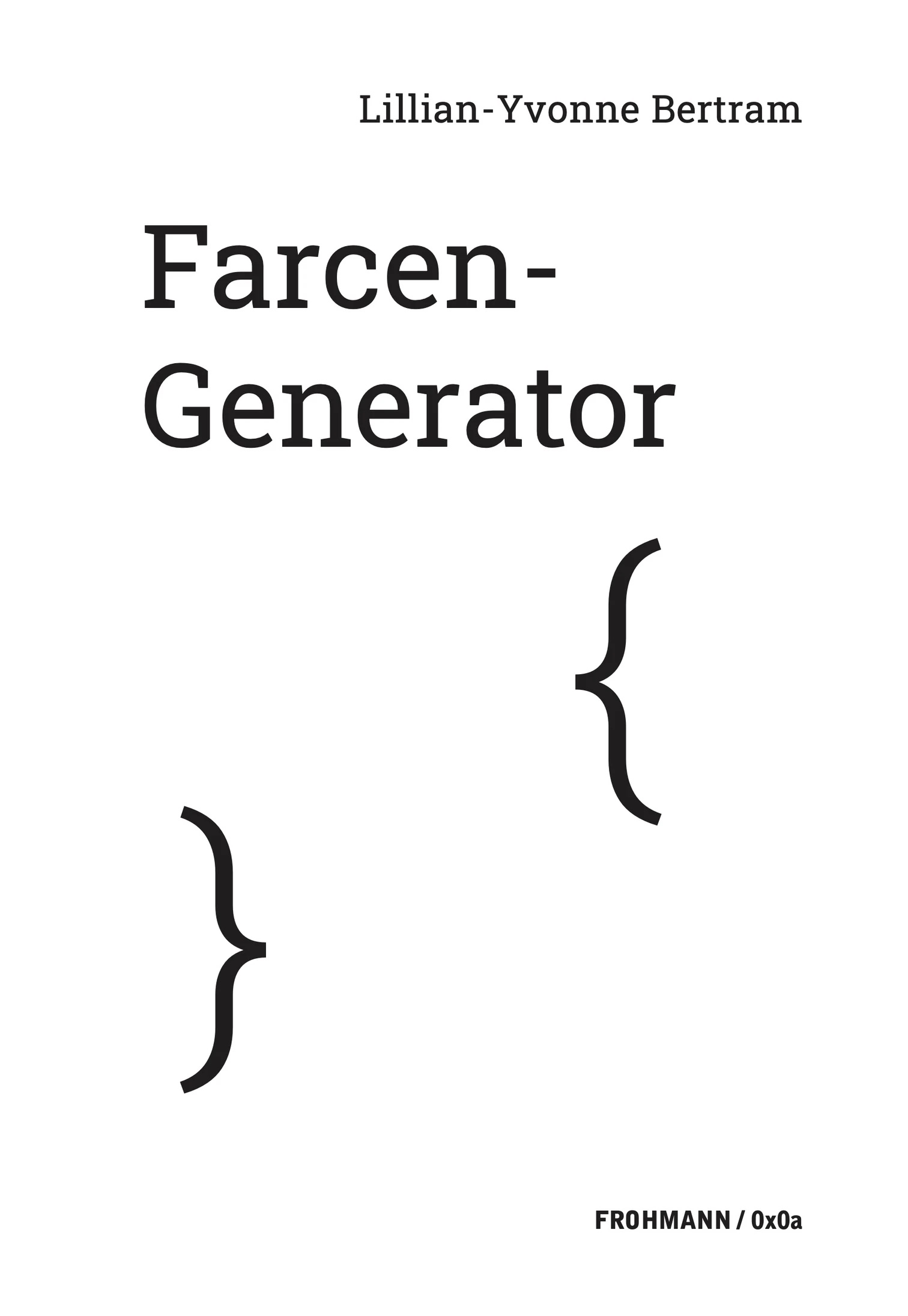 0x0a is proud to publish the German-language translation of Lillian-Yvonne Bertram’s Travesty Generator under the title Farcen-Generator. You can find the original, which came out with Noemi Press, here.
0x0a is proud to publish the German-language translation of Lillian-Yvonne Bertram’s Travesty Generator under the title Farcen-Generator. You can find the original, which came out with Noemi Press, here.
Hannes Bajohr, who translated the book, spoke with Bertram about her work:
What is Travesty Generator? How does it compare to your other work?
Travesty Generator is technically my fourth full-length book of poetry and writing. None of my previous books are computational—however, all of my books share a spirit of innovation and experimentation. In that sense, while computation isn’t strictly part of my previous books, algorithms, combinations, and attempts at mathematical processes, are part of my work and have been since the beginning. So my previous books don’t “look” computational, but there are poems in them that come from thinking computationally and algorithmically, and Travesty Generator is an evolution of the experimental affinities across my work as a whole.
What is the connection between the form of programming and the matter of Black lives in the book?
One of the connections I am trying to draw is between present day algorithmic injustice and historical algorithmic injustice, which in the USA took the form of codified laws restricting the movement and life possibilities for Black people. Some of these social codes were laws: Black people couldn’t drink from the same drinking fountains, ride the same buses, live in the same neighborhoods, as white people. Even after the removal of these laws at the federal legislative levels, informal socially restricted codes still existed and conditioned where Black people could (comfortably) live, what jobs they could get, what schools they could go to–if at all. In other words–federally mandated and then socially mandated racial apartheid. While these laws don’t exist today, they’ve mutated into other forms, thanks to algorithms, coding, and technology. Things like predictive policing, for example, or facial recognition software. The restrictive codes haven’t been eliminated; they’ve just been made more invisible thanks to the “black box” of technology. Then there’s also the “coded language” shared among Black people, which is also present in the book. Zach Whalen , in a review for Critical Code Studies, also notes that the popular programming interface is the form of the notebook, which uses coding “cells”. The cells are restrictive, in the same way that racial codes are intended to be restricted and limit the physical and psychic mobility of Black lives. The book is attempting to explore the intersections between computer code and that which is and has been codified, with respect to Black lives.
In your afterword, you call yourself an “unimagined coder.” What do you mean by that?
I mean that in some ways, I an “unexpected” and “unimagined” by the original gatekeepers of computer science and coding. I am a Black American woman, and when I was growing up, options like programming and computer science were not presented to me, or I (and others) were actively discouraged from them because we didn’t fit the type of person you expect to be into computers and programming. So in that sense, I am participating in a field and discourse that never anticipated or imagined that a person, or people, like me would be part of it, bringing our perspectives and social commitments.